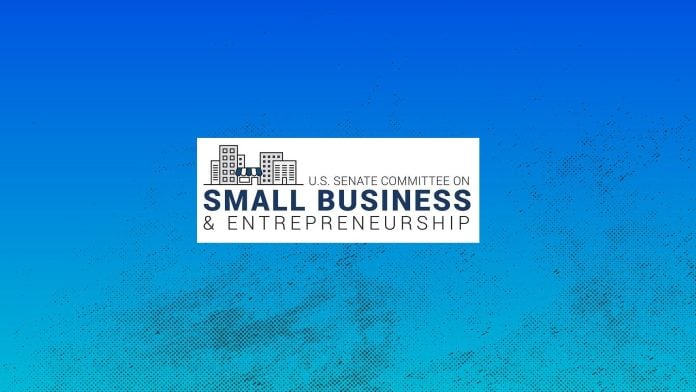The Senate is ramping up efforts to revitalize American innovation and ensure that small businesses truly benefit from federal funding programs designed to foster technological advancement. During a recent Senate floor address, Joni Ernst, Chair of the Senate Committee on Small Business and Entrepreneurship, emphasized the need for significant reforms to the Small Business Innovation Research (SBIR) and Small Business Technology Transfer (STTR) programs.
Ernst’s statement strikes a chord with many small business owners who rely on government funding to develop critical technologies. “The status quo will not work,” she asserted, highlighting that American taxpayers deserve a system that genuinely supports emerging businesses rather than favoring a select few large firms.
The SBIR-STTR programs are often hailed as America’s “seed fund,” allocating approximately $5 billion each year to promising startups. However, Ernst pointed out that the current system disproportionately favors a small number of large companies, draining taxpayer dollars without delivering the promised innovation. “In practice, however, too many large companies—not truly small businesses—drain millions of taxpayer dollars by churning out white papers rather than turning investments into reality,” she noted.
This issue has far-reaching implications for the small business landscape. While many small startups struggle to compete for federal funds, major players have dominated the SBIR program. Alarmingly, a mere 25 companies have received 18 percent of the funding allocated. “A single company has received $650 million—more award dollars than the total issued to all companies in 26 states combined,” Ernst pointed out, illustrating the inequities within the funding process.
The risk of foreign influence adds another layer of complexity. Ernst revealed that 835 applications for SBIR-STTR funding were flagged for foreign risks in just 2023 and 2024, yet only 303 were denied. "Even worse, a lack of foreign due diligence standards across government has opened the door for exploitation," she cautioned.
For small business owners, this situation signals a pressing need for reform. Ernst proposed an amendment to provide a 30-day extension of the SBIR and STTR programs, contingent on reforms that ensure taxpayer dollars are effectively utilized. “We shouldn’t be serving as a subsidy for Beijing when we are unleashing the Golden Age of America,” she remarked, underscoring the urgent need to safeguard American intellectual property.
The proposed reforms aim to achieve two main objectives: first, to root out waste and prioritize true small businesses by establishing reasonable lifetime limits on SBIR funding; and second, to standardize the definition of foreign risk across federal agencies to counter espionage. “This measure would affect only 0.2 percent of participants in the program,” Ernst explained, aiming to strike a balance that keeps the focus on genuine innovation.
Nonetheless, small business owners should consider the potential challenges that may arise during implementation. Resistance to change is often seen in government structures, and Ernst’s call for reforms may face pushback. The risk of bureaucratic inertia could hinder progress, leaving small businesses in limbo while larger firms continue to secure funds.
Ernst’s discourse resonates with many in the small business community who aspire to leverage federal resources to advance their innovations. “Our country cannot and should not delay these reforms any longer,” she asserted, encouraging fellow lawmakers to prioritize small businesses and national security alike.
In summary, the Senate’s ongoing conversation about reforming the SBIR and STTR programs presents both opportunities and challenges for small business owners. As Ernst’s remarks highlight the need for efficiency and equity in federal funding, many hope that meaningful changes will pave the way for a more beneficial landscape for all American innovators.
For more details, you can read the original post here.
Image Via BizSugar



